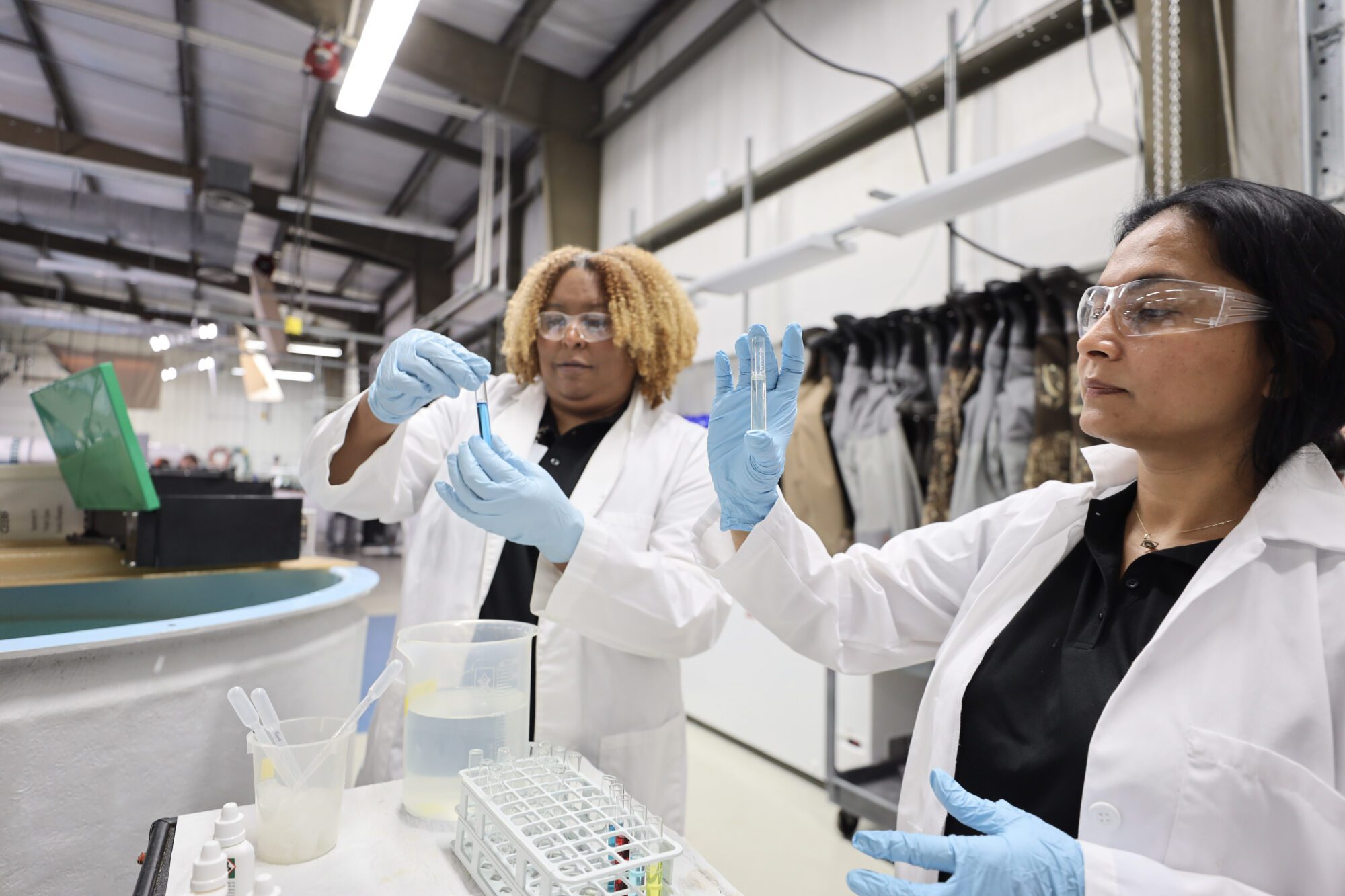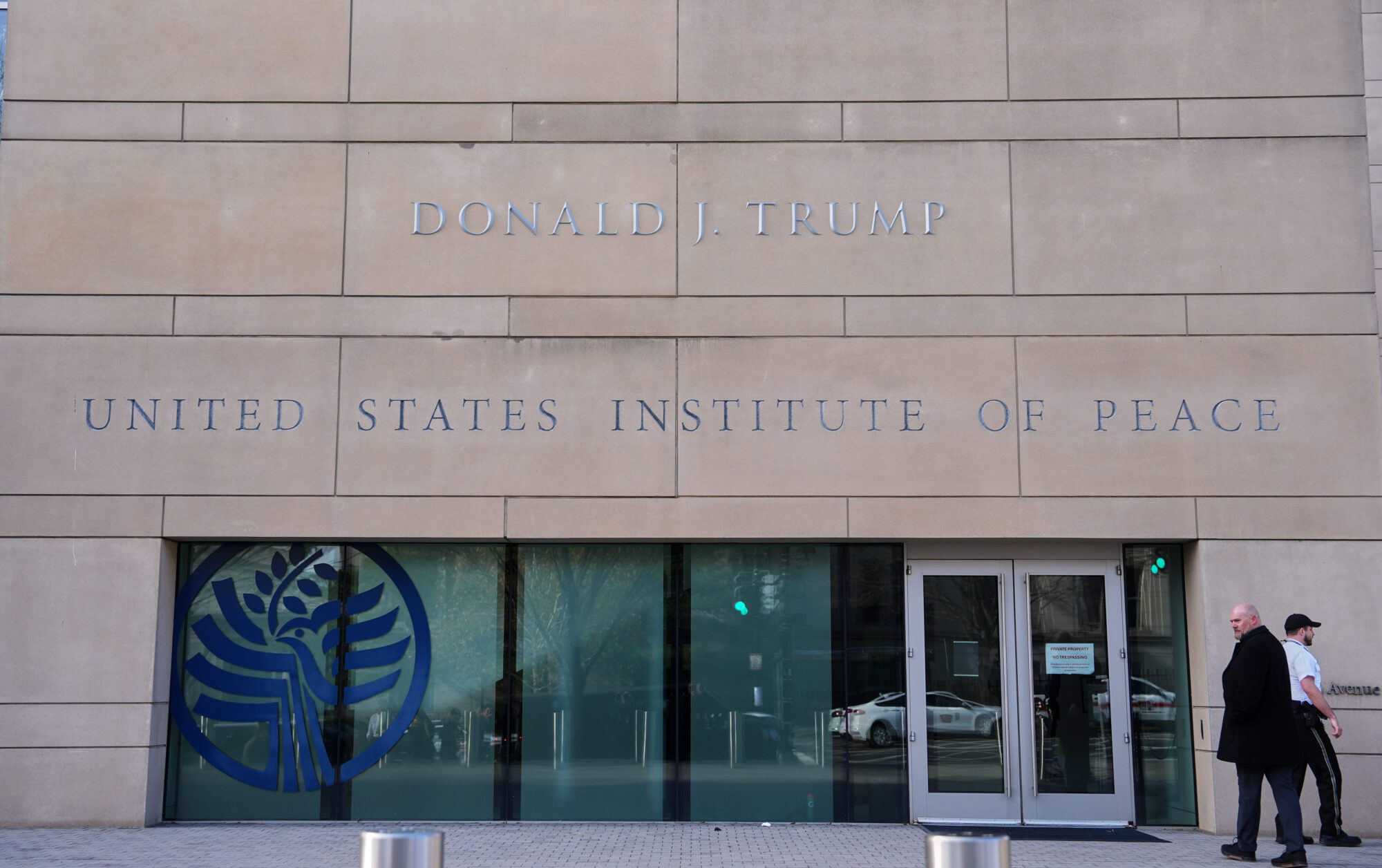
Suneetha Panda, a high-school teacher from Georgia, and Erica Taylor-Wilson, a teacher at Warren Central High School in Vicksburg, Mississippi, fill flasks at the U.S. Army Engineer Research and Development Center (ERDC) during the Research Experiences for STEM Educators and Teachers (RESET) program through the Army Education Outreach Program’s (AEOP). RESET is a four-week experience where high-school and middle-school teachers work with world-class scientists and engineers at participating Army Research Centers. ERDC led the Army this summer with 18 RESET student teachers from across the United States. (U.S. Army Corps of Engineers photo by Khary Ratliff)
- This summer, 18 teachers from across the country gained hands-on experience they can bring to students in middle and high school STEM classrooms.
More than a dozen teachers from across the nation spent a month of their summer learning from the U.S. Army Engineer Research and Development Center (ERDC) in Vicksburg, Mississippi.
The training was offered as part of the Research Experiences for STEM Educators and Teachers (RESET) program under the Army Educational Outreach Program. During two four-week sessions, a total of18 teachers gained hands-on experience while working alongside scientists and engineers at the center.
The outreach program was established 11 years ago to provide these training opportunities to middle and high school teachers in grades 5 to 12 who teach in the subject areas of Science, Technology, Engineering, and Mathematics.
Getting the educators out of the classroom and into diverse settings helps prepare them for the coming school year, organizers said, while providing assistance to the center’s scientists and engineers.
“Having people in the labs that are enthusiastic about the work that we are doing is always very helpful – it is good for me, good for the research and good for ERDC,” said Luke Gurtowski, a research chemical engineer in ERDC’s Environmental Lab.
The break from classroom instruction is expected to reinvigorate the educators, and provide contacts with the Army’s leading engineers and scientists in the labs that can be utilized through the school year. Experiences gained by the teachers follow them back to the classroom as they consider more immersive learning opportunities for students.
“You teach consecutively for 45-minute blocks, so you get burned out with the same curriculum,” said Keishelle Pete, a Houston, Texas-based chemistry and forensic science teacher. “Being in the lab reignites the spark and it helps teachers get excited about learning again.”
This year’s group of 18 educators was described by the Army as the largest in the program’s history.
The ERDC in Vicksburg includes seven labs, six of which played host to educators during the program. Research at the labs focuses on the areas such as environment, information technology, construction engineering, and coastal and hydraulic issues.
Teachers who are interested in becoming part of the program must go through a competitive application process. Two levels are offered in the program. Level 1 offers educators online professional development, online chat sessions with scientists and engineers with the Army, and curriculum development in the areas of STEM. There is a time commitment of 60 hours for level 1. Level 2 is what was offered to teachers in Vicksburg over the summer. It includes the perks from Level 1 while adding the opportunity to conduct four weeks of supervised research with Army engineers and scientists.
Registration for the next program is open until November 1. Learn more about the AEOP here.











